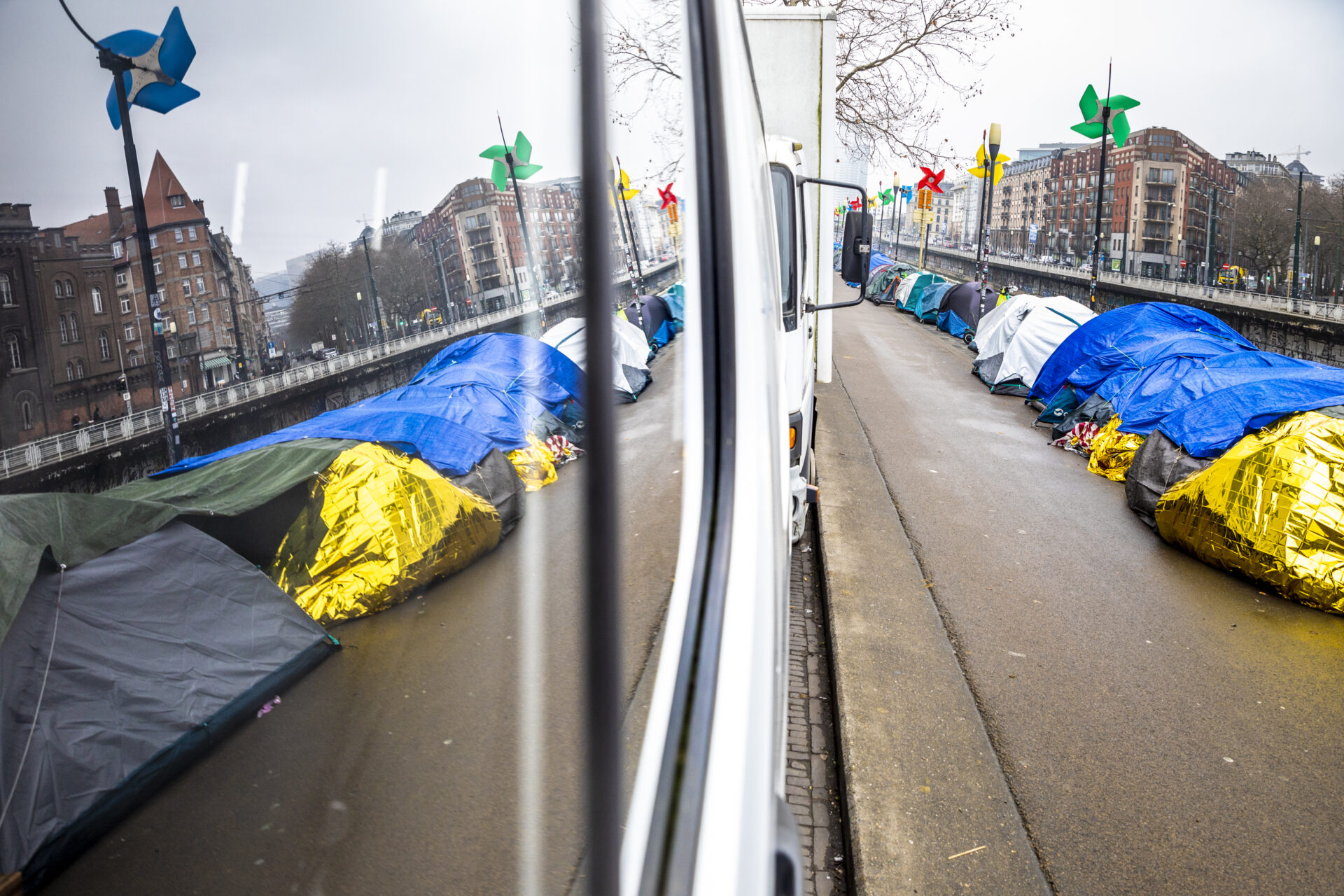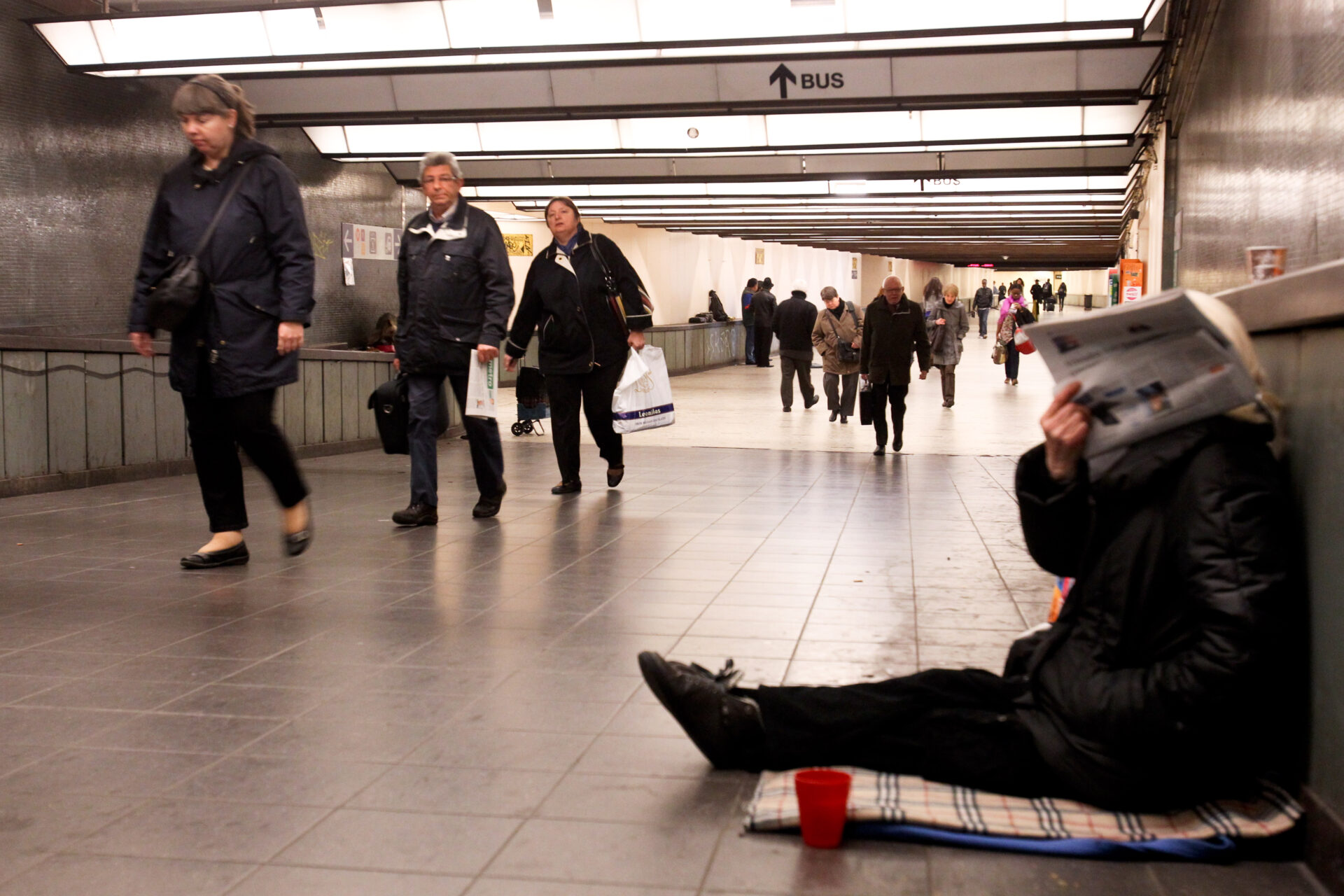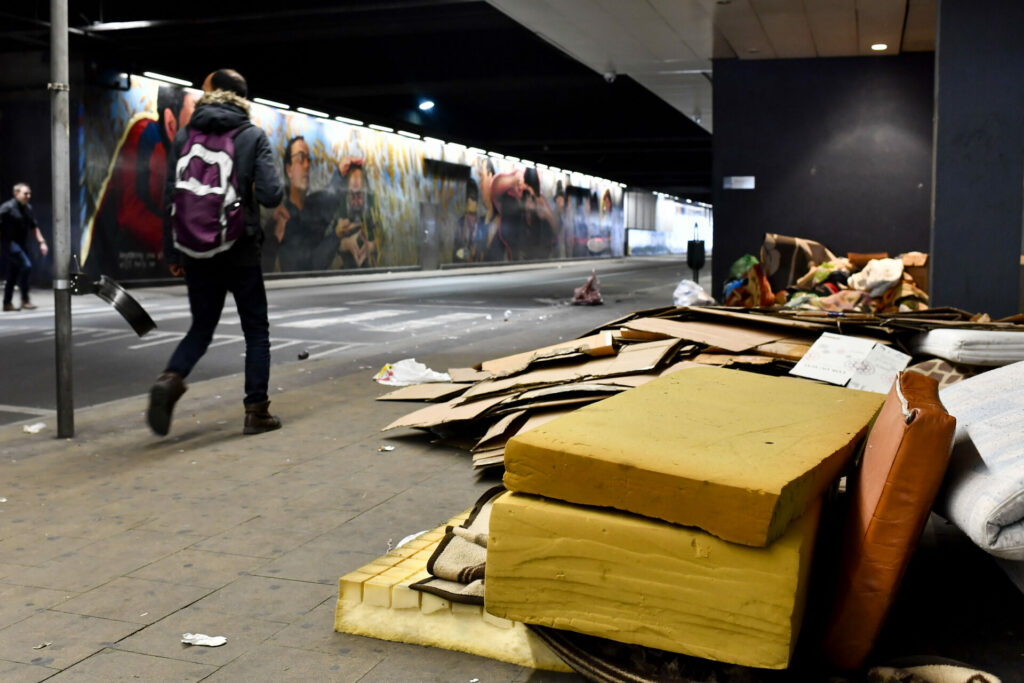With homeless organisations reporting that nearly 70% of sheltered people are undocumented, associations working in the sector are sounding the alarm to get the most vulnerable off the streets as winter approaches.
Samusocial, CIRÉ, Médecins du Monde, l'Ilot and the Brussels Platform Armoede have jointly called on Brussels residents, the media and politicians to acknowledge the reality of undocumented people while proposing solutions to help them out of homelessness.
"At a time when we have heard the issue of ‘undocumented’ people is being lumped together with insecurity and terrorism, the associations are calling for nuance and responsibility on the part of the authorities, institutions and citizens alike," the statement read.
In a survey from last month, 56% of Belgians expressed their support for the Belgian Government's decision to stop offering shelter to single men who applied for asylum.
Out of the 1,641 homeless people that Samusocial sheltered in one day of action (17 October), just under half were asylum seekers. When looking into the figures of Samusocial's shelters in Brussels, almost 70% are undocumented migrants or without a valid residence permit.
Samusocial manages 688 accommodation places for applicants for international protection, spread across three centres in Molenbeek-Saint-Jean, Etterbeek and Koekelberg, working in collaboration with Fedasil, Belgium’s asylum reception agency.

Endless lines of tents with homeless asylum seekers in front of the Petit Chateau Fedasil Arrival centre, in Brussels, Thursday 23 February 2023. Credit: Belga / Hatim Kaghat
"Our daily work constantly reminds us of this implacable fact: no measure will put an end to homelessness until we find humane and sustainable solutions to the issue of undocumented migrants," the statement read.
The organisation is further denouncing the current migration and asylum policy of the Belgian Government, saying it actively contributes to entrenching individuals and families in the cycle of homelessness.
Vulnerability needs to be taken seriously
The collective of organisations are drawing from their own work on the street to shine a light on the realities of undocumented people living in the street.
Many homeless people in Brussels are elderly, sick, losing their independence and in a deteriorating situation. This can mean that they "sometimes die on the streets or in our emergency centres because, without a residence permit, they cannot get into a care home in time."
Greater attention is needed to people's vulnerability when granting or maintaining their right of residence in Belgium, Samusocial said, citing as an example that in 2022, they assisted 291 people over the age of 58, and eighty people over 68.

A homeless person in the Central station Metro stop. Credit: Belga / Virginie Lefour
Granting vulnerable people the right to stay would enable them to receive support based on their psychological, medical and social needs, the organisations argued, so that they can continue or end their lives in dignity.
Institutional and domestic violence
There are also gendered aspects to the crisis, Samusocial said, as women who are often mothers (sometimes arriving in Belgium as part of family reunification) risk losing their residency rights if they escape a violent spouse in cases of domestic violence.
Better protection of vulnerable people would, for example, ensure that a woman who is a victim of domestic violence is not then subjected to further institutional violence as well, by losing her residency status after leaving an abusive spouse. They must be able to be protected by an autonomous residence permit issued quickly.
Samusocial stressed there are also many homeless European nationals, some of whom have been in Belgium for several years, who have become homeless and undocumented as soon as they lost their homes and legal addresses.
Related News
- Brussels to tackle drug and homelessness crisis in Metro stations
- Asylum reception crisis: Academics denounce 'flagrant disregard' for rule of law
- 'Hidden homelessness' in the Brussels Region exposed in new report
Facilitating housing or the granting of a reference address would enable many people to escape the impasse of homelessness. This is particularly true of European nationals, for whom the loss of housing and a legal address is a major obstacle.
Other recommendations include making urgent Medical Assistance more accessible and better adapted to the realities and needs of homeless people.
The organisations said they identified pragmatic solutions that would enable frontline teams to open up ways out of the operational impasses they currently face in receiving and supporting homeless and undocumented people, particularly the most vulnerable.

